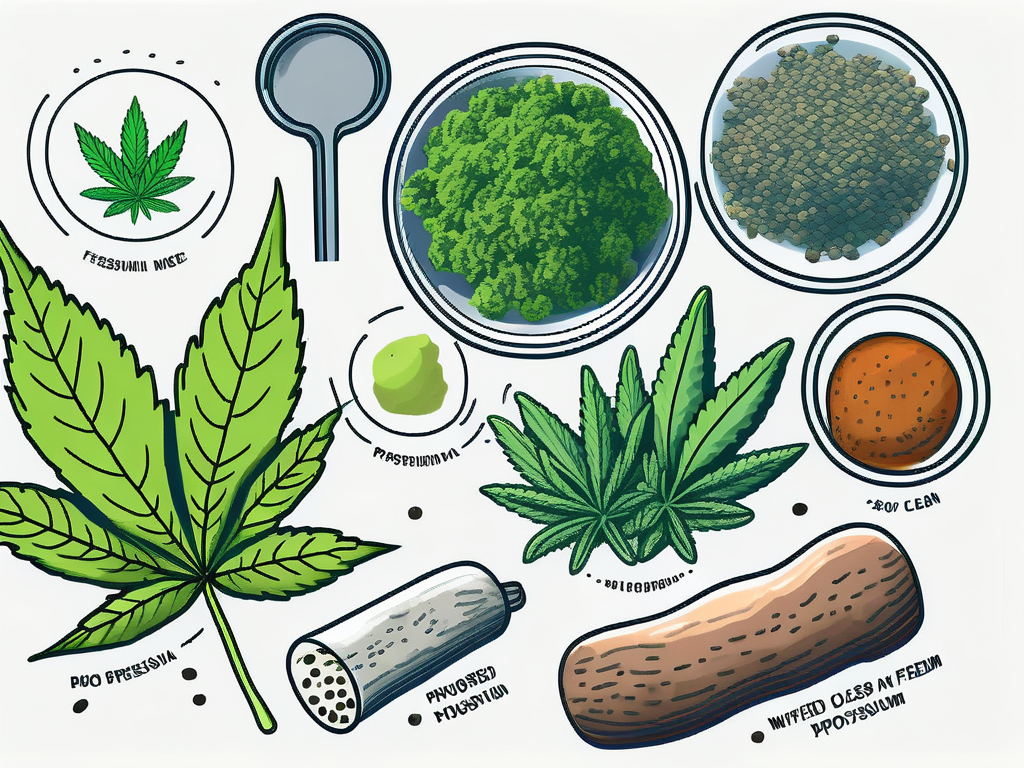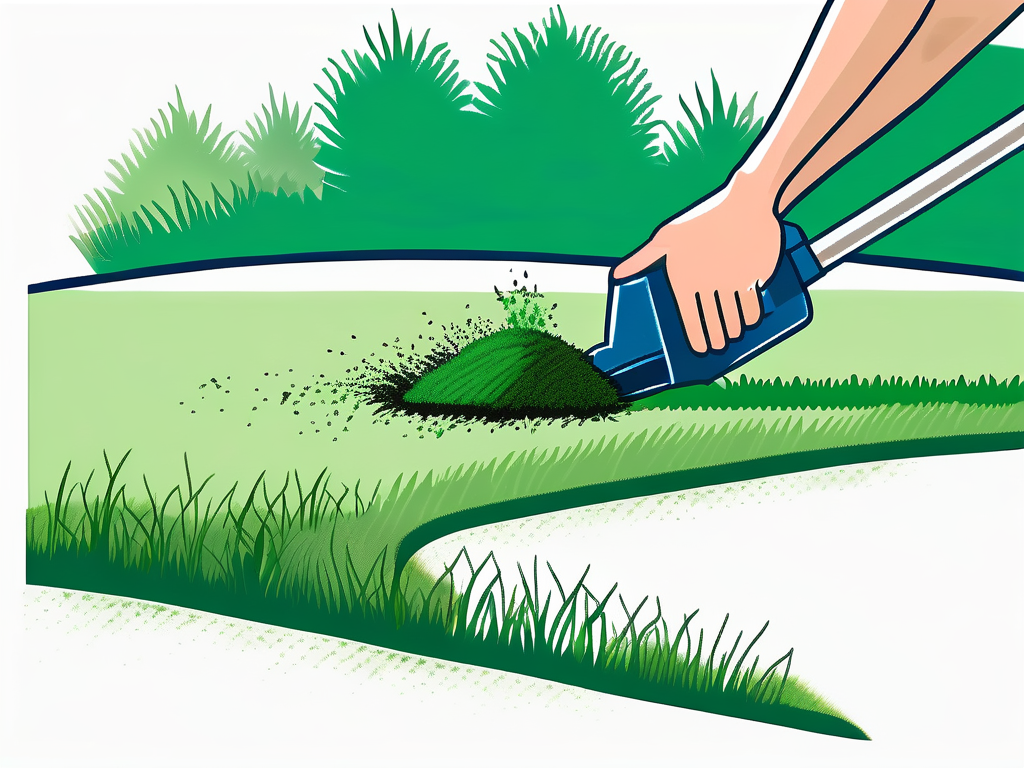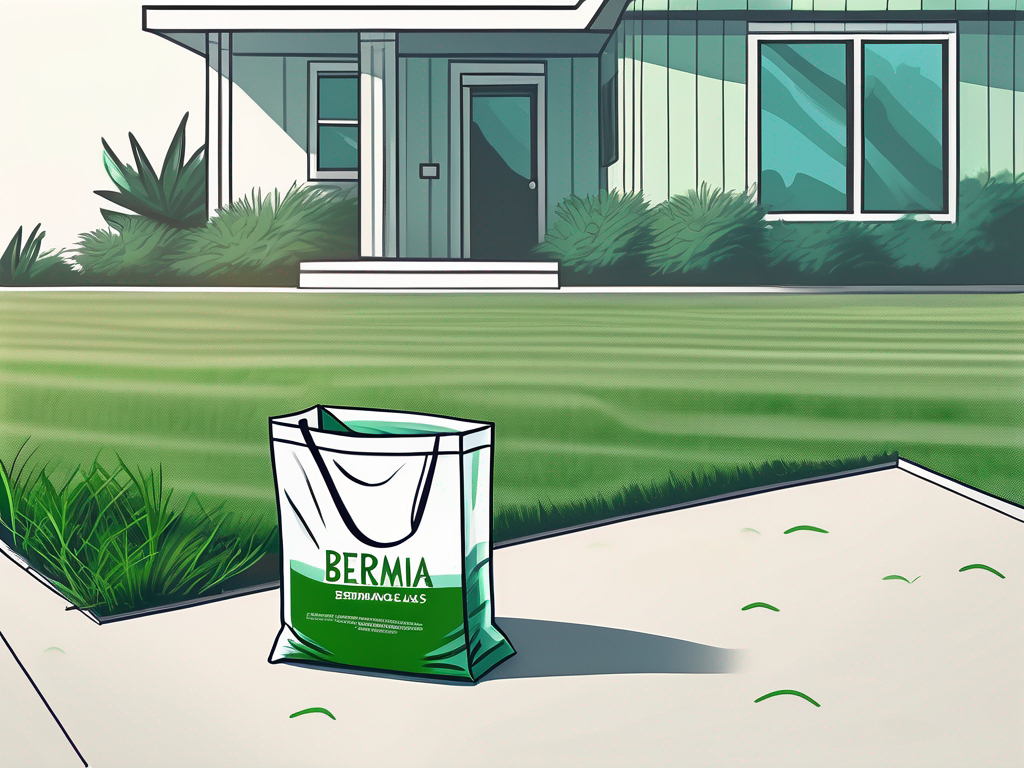Bermuda grass is a popular choice for lawns due to its ability to tolerate heat and drought. However, like any grass, it can be susceptible to weeds. That’s where weed and feed products come in handy. In this comprehensive guide, we will explore the best weed and feed options for Bermuda grass, understanding their importance, key ingredients, selection process, and proper application techniques. By the end, you will be equipped with the knowledge needed to maintain a lush, weed-free Bermuda grass lawn.
Understanding Bermuda Grass
Before we delve into weed and feed options, let’s take a closer look at Bermuda grass. This warm-season grass is known for its rapid growth, fine texture, and bright green appearance. Understanding its characteristics and ideal growth conditions is crucial in maintaining a healthy lawn.

Bermuda grass, scientifically known as Cynodon dactylon, is a resilient and versatile grass species that has been widely used in lawns, golf courses, and athletic fields. Its ability to establish quickly and spread rapidly through aboveground stems called stolons, and belowground stems called rhizomes, makes it a popular choice for areas that require quick coverage and durability.
Characteristics of Bermuda Grass
Bermuda grass has a tough, wiry texture with short, slender blades. It thrives in hot and humid climates, making it a popular choice for southern regions. Its rapid growth allows for quick recovery from damage caused by foot traffic or pests. Additionally, Bermuda grass has excellent wear and tear tolerance, making it suitable for high-traffic areas.
One interesting characteristic of Bermuda grass is its drought tolerance, allowing it to survive in periods of limited water availability. This grass species can quickly go dormant during drought conditions and revive once water is reintroduced, showcasing its adaptability to varying environmental stressors.
Ideal Growth Conditions for Bermuda Grass
To keep your Bermuda grass thriving, it is essential to provide the right conditions. This grass type thrives in full sun, requiring at least 6 to 8 hours of direct sunlight per day. It prefers well-drained soil with a pH range of 6 to 7.5. Regular watering and proper fertilization are key to promoting healthy growth and preventing weed invasion.
Furthermore, Bermuda grass is known for its high nitrogen requirements, necessitating regular fertilization to maintain its lush green color and vigorous growth. It is crucial to follow a fertilization schedule tailored to the specific needs of Bermuda grass to avoid nutrient deficiencies or excesses that can impact its overall health and appearance.
The Importance of Weed and Feed
Weed and feed products play a vital role in the maintenance of Bermuda grass lawns. Let’s explore why they are crucial and the benefits they offer.
Ensuring the health and beauty of your Bermuda grass lawn involves more than just regular mowing and watering. Weed and feed products are a key component in achieving a lush and vibrant lawn that enhances the overall aesthetic of your outdoor space.
Role of Weed and Feed in Lawn Maintenance
Weed and feed products are designed to tackle two common lawn issues simultaneously – weeds and nutrient deficiencies. The weed control aspect targets broadleaf weeds and grassy weeds that can invade Bermuda grass, while the nitrogen-rich fertilizer component provides essential nutrients for the grass to thrive.
By incorporating weed and feed into your lawn care routine, you are not only addressing existing weed problems but also proactively nourishing your Bermuda grass to promote long-term health and resilience.
Benefits of Using Weed and Feed for Bermuda Grass
Using weed and feed products offers numerous benefits for your Bermuda grass lawn. Firstly, it eliminates weeds that compete with the grass for vital nutrients, water, and sunlight. By controlling weeds, the grass can grow more vigorously and maintain its vibrant color. Additionally, the added nutrients in the feed component promote healthier root development and overall growth, making the grass more resilient to stressors like drought and foot traffic.
Furthermore, the application of weed and feed products can save you time and effort in the long run by reducing the need for individual weed control and fertilization treatments. This all-in-one solution simplifies lawn care tasks and ensures that your Bermuda grass receives the necessary care it needs to thrive throughout the growing season.
Key Ingredients in Weed and Feed
Understanding the key ingredients in weed and feed products is essential for choosing the right one for your Bermuda grass lawn. Let’s take a closer look at the essential nutrients and herbicides used in these products.

Nutrients Essential for Bermuda Grass
Bermuda grass requires several key nutrients to thrive, including nitrogen, phosphorus, and potassium. Nitrogen encourages robust growth and vibrant color, phosphorus aids in root development, and potassium promotes disease resistance and stress tolerance. High-quality weed and feed products contain a balanced blend of these essential nutrients to support Bermuda grass health.
Additionally, micronutrients such as iron, manganese, and zinc play crucial roles in maintaining optimal Bermuda grass health. Iron helps with chlorophyll production, giving the grass its green color, while manganese supports enzyme activation and overall plant growth. Zinc is essential for hormone regulation and protein synthesis, contributing to the grass’s ability to withstand environmental stressors.
Herbicides and Their Functions
Herbicides found in weed and feed products target specific weeds and help prevent their germination or growth. Broadleaf weed control herbicides are effective against dandelions, clover, and other unwanted plants that can infiltrate Bermuda grass lawns. Grassy weed control herbicides, on the other hand, target grassy weeds like crabgrass and goosegrass. The combination of these herbicides provides comprehensive weed control for your Bermuda grass lawn.
Furthermore, pre-emergent herbicides create a barrier in the soil to prevent weed seeds from sprouting, while post-emergent herbicides target existing weeds, eliminating them from the lawn. Selective herbicides ensure that only the targeted weeds are affected, leaving the Bermuda grass unharmed and thriving. Understanding the different functions of herbicides in weed and feed products can help you effectively manage weed growth while promoting a healthy Bermuda grass lawn.
Selecting the Best Weed and Feed for Bermuda Grass
Choosing the right weed and feed product for your Bermuda grass lawn requires careful consideration. Several factors should guide your decision-making process, including the health of your lawn, weed types, and product compatibility.
When it comes to maintaining a lush and vibrant Bermuda grass lawn, the choice of weed and feed products plays a crucial role. Not all products are created equal, and selecting the best one for your specific lawn requirements can make a significant difference in the overall health and appearance of your grass.
Factors to Consider When Buying Weed and Feed
Before purchasing a weed and feed product, assess the condition of your Bermuda grass lawn. Consider factors such as weed density, overall grass health, and any specific weed problems you may be experiencing. Additionally, check the product label for compatibility with Bermuda grass and any specific recommendations for your region.
Understanding the specific needs of your Bermuda grass lawn is essential in making an informed decision when choosing a weed and feed product. Factors such as soil composition, sun exposure, and previous lawn care practices can all impact the effectiveness of the product you select. Taking the time to evaluate these elements can help you tailor your choice to best suit your lawn’s requirements.
Top Weed and Feed Products for Bermuda Grass
There are several excellent weed and feed products available for Bermuda grass lawns. Some popular options include [Product A], [Product B], and [Product C]. These products are formulated specifically for Bermuda grass and offer effective weed control along with essential nutrients for healthy growth. Remember to follow the instructions provided on each product for the best results.
When exploring the top weed and feed products for Bermuda grass, it’s important to consider not only the immediate benefits of weed control and fertilization but also the long-term impact on your lawn’s health. Look for products that provide a balanced blend of nutrients to support strong root development and overall resilience against common lawn issues.
Application of Weed and Feed on Bermuda Grass
Applying weed and feed correctly is crucial for achieving optimal results. Let’s explore when to apply these products and the proper application techniques.

When to Apply Weed and Feed
The timing of weed and feed application is crucial for its effectiveness. For Bermuda grass, it is recommended to apply weed and feed during the early growing season, just before the grass enters its active growth phase. This typically falls in spring or early summer, when soil temperatures reach around 55 to 65 degrees Fahrenheit. Applying the product during this period allows for better weed control and ensures the grass receives the necessary nutrients.
How to Properly Apply Weed and Feed
When applying weed and feed, carefully read and follow the instructions provided by the manufacturer. Ensure that the grass is dry before application for better product adherence. It’s essential to apply evenly, using a spreader for larger lawns. After application, water the lawn lightly to aid the absorption of the nutrients and activate the weed control. Avoid excessive watering immediately after application to prevent product runoff.
By following these guidelines, you can effectively maintain a healthy Bermuda grass lawn with the best weed and feed products available. Remember to assess your lawn’s specific needs, select the appropriate product, and apply it properly for optimal results. With proper care and maintenance, your Bermuda grass lawn will thrive, outshining any weed infestations.

